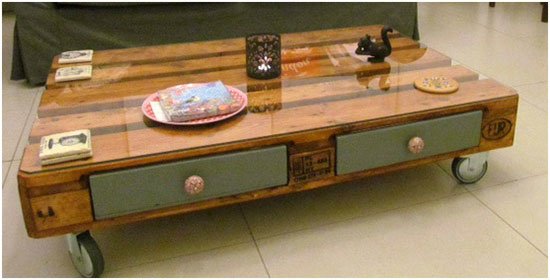In a world inundated with disposable decor, there lies a quiet revolution brewing in the corners of thrift stores and garage sales. As we become increasingly aware of the environmental toll of our throwaway culture, more and more people are looking for ways to breathe new life into old furniture. If you’re itching to get your hands dirty and unleash your inner creativity, upcycling old furniture might just be the perfect project for you. Join us as we delve into the art of turning forgotten relics into stunning statement pieces for your home.

1. Transforming Old Furniture Into Stylish Pieces
Have you ever looked at an old piece of furniture and thought it had potential to be something amazing? With a little creativity and some DIY skills, you can transform old furniture into stylish pieces that will elevate the look of your home.
One way to upcycle old furniture is to sand it down and give it a fresh coat of paint. This simple yet effective technique can completely change the look of a piece, giving it a modern and updated feel. You can also add some new hardware, such as drawer pulls or knobs, to further enhance the transformation.
Another fun way to upcycle old furniture is to decoupage it with interesting paper or fabric. This technique involves gluing decorative material onto the furniture surface and sealing it with a clear varnish. This can create a unique and personalized look that will surely be a conversation starter in your home.
| Old Piece of Furniture | Upcycled Transformation |
| Plain wooden dresser | Painted turquoise with gold hardware for a bohemian look |
| Old coffee table | Decoupaged with vintage maps for a travel-inspired vibe |
2. Creative Techniques for Upcycling Furniture
If you’re looking to breathe new life into your old furniture, upcycling is the way to go. It not only saves you money but also allows you to unleash your creativity and give your space a unique touch. Here are some creative techniques to help you transform your old furniture into something fresh and stylish:
- Decoupage: Use decorative paper or fabric to cover your furniture pieces, creating a mosaic-like effect. This technique is perfect for adding a pop of color and pattern to dull furniture.
- Chalk painting: Give your furniture a vintage look by using chalk paint. This type of paint adheres well to various surfaces and can be easily distressed to achieve a shabby chic finish.
- Stencil art: Add a personal touch to your furniture by using stencils to create intricate designs or messages. This technique is great for customizing your pieces to match your style.
- Reupholstering: Give your chairs or sofas a brand-new look by reupholstering them with fresh fabric. Choose a bold pattern or color to make a statement in your space.
| Technique | Advantages |
|---|---|
| Decoupage | Easy way to add color and pattern |
| Chalk painting | Creates a vintage, shabby chic look |
| Stencil art | Allows for personalized designs |
| Reupholstering | Gives furniture a completely new appearance |
3. Choosing the Right Materials and Tools for Upcycling
When it comes to upcycling old furniture, one of the most important aspects to consider is choosing the right materials and tools for the job. The success of your upcycling project heavily depends on the quality and suitability of the materials and tools you use. Here are some tips to help you make the best choices:
Materials:
- Look for sturdy and high-quality materials that can withstand the wear and tear of daily use.
- Consider using environmentally friendly materials such as reclaimed wood or recycled fabrics to give your furniture a unique and sustainable look.
- Choose materials that complement the style and design of the furniture piece you are upcycling.
- Don’t be afraid to get creative and experiment with different materials to achieve the desired look.
Tools:
- Invest in quality tools that are suitable for the specific tasks involved in upcycling furniture, such as sanding, painting, and upholstery.
- Make sure you have the necessary tools on hand before starting your upcycling project to avoid delays and frustration.
- Consider borrowing or renting tools if you don’t have them already, to save money and resources.
- Properly maintain your tools to ensure they are in good working condition and can be used for future upcycling projects.
4. Tips for Adding Personal Touches to Upcycled Furniture
When upcycling old furniture, adding personal touches can truly make a piece stand out and reflect your unique style. Here are a few tips to help you infuse creativity into your upcycling projects:
As we wrap up our exploration of how to upcycle old furniture, remember that with a little creativity and elbow grease, you can breathe new life into even the most tired pieces. Whether you’re revamping a family heirloom or giving a thrift store find a modern twist, upcycling old furniture is a rewarding and sustainable way to add character to your home. So next time you come across a worn-out chair or dated dresser, don’t throw it away – instead, see it as a blank canvas just waiting to be transformed into something truly unique. Happy upcycling!
